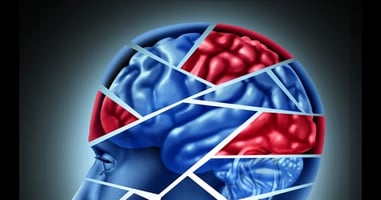People who experienced a traumatic brain injury (TBI) were three times more likely to die...
Veterans With Blast Injuries Show Signs of Chronic Traumatic Encephalopathy
Blast exposure is associated with traumatic brain injury (TBI), neuropsychiatric symptoms, and long-term cognitive effects, reported Boston University School of Medicine researchers in the May 16 Science Translational Medicine. After examining postmortem brains from U.S. military veterans exposed to blast and/or concussive injury, they found evidence of chronic traumatic encephalopathy (CTE), a neurodegenerative disease, that was similar to the CTE neuropathology seen in young American football players and a professional wrestler with histories of concussive injuries.
The researchers developed a blast neurotrauma mouse model and used it to determine that head immobilization during blast exposure prevented blast-induced learning and memory deficits. “The contribution of blast wind to injurious head acceleration may be a primary injury mechanism leading to blast-related TBI and CTE,” they wrote. They said their results identify common pathogenic determinants leading to CTE in blast-exposed military veterans and head-injured athletes and provide evidence linking blast exposure to persistent impairments in neurophysiological function, learning, and memory.”
For more information about TBI, see the Textbook of Traumatic Brain Injury, Second Edition, available from American Psychiatric Publishing, here.
The researchers developed a blast neurotrauma mouse model and used it to determine that head immobilization during blast exposure prevented blast-induced learning and memory deficits. “The contribution of blast wind to injurious head acceleration may be a primary injury mechanism leading to blast-related TBI and CTE,” they wrote. They said their results identify common pathogenic determinants leading to CTE in blast-exposed military veterans and head-injured athletes and provide evidence linking blast exposure to persistent impairments in neurophysiological function, learning, and memory.”
For more information about TBI, see the Textbook of Traumatic Brain Injury, Second Edition, available from American Psychiatric Publishing, here.
(Image: Aspen Photo/Shutterstock.com)






